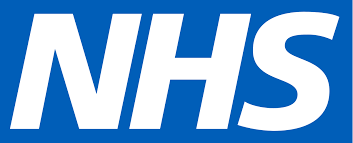At Aim Forward, we are regularly asked about the diagnosis pathways for ADHD, and accessing support for work and study. There are several routes to ADHD diagnosis in the UK, and we know that choosing the one that’s right for you can be confusing.
While you don’t need an ADHD diagnosis to get support, it can help you to understand how this neurodevelopmental condition impacts your daily life. Whether you’re seeking an ADHD diagnosis for yourself or your child, it’s essential to know the available routes in the UK and their differences.
Whichever route you choose, finding a service provider who prioritises your experience and well-being can be invaluable. A great service provider should offer support and guidance throughout your journey.
In this blog, we’ll explore everything you need to know about obtaining an ADHD diagnosis and the support available.
ADHD diagnosis routes in the UK

The NHS
You can access a free ADHD diagnosis with the NHS, but expect long waiting times (sometimes up to 3 years). During this time, you may struggle without proper adjustments or support in your work or study. This can affect your performance and productivity. While the NHS is a trusted route, these delays can be challenging for those needing immediate support.
Right to Choose
Through the Right to Choose initiative, you can opt for private providers funded by the NHS for an ADHD diagnosis. This route often has shorter waiting times, typically between 6 and 12 months, with more provider options. This can be a great route if you want to access your diagnosis through the NHS, with more manageable waiting times. However, there has been some concern about the quality of and accuracy of external providers compared with the NHS.


Private
For those seeking a quicker ADHD diagnosis, a private assessment is the fastest option You will often get an appointment within weeks, but costs can vary. This route may appeal to you if you are in education or work, and need a prompt diagnosis to access support, medication, or adjustments under the 2010 Equality Act. Because you are funding the assessment, you might feel more in control and able to ask questions to feel supported through the process.
A diagnostic assessment with Aim Forward can help identify the strengths and weaknesses you experience in certain abilities and equip you with recommended strategies for learning and working your way. Get in touch here to contact a member of our Support Team.
Types of ADHD diagnoses
There are three main professionals involved in ADHD diagnosis: psychiatrists, psychologists, and specialist assessors. Each plays a distinct role in the diagnostic process, and it’s important to understand what each one offers.
Specialist Psychiatrist Diagnosis: A specialist psychiatrist is the only medical professional qualified to provide a formal diagnosis of ADHD and prescribe medication. This diagnosis typically involves assessing your mental health and other co-occurring conditions. This offers a comprehensive overview that could lead to treatment options like medication.
Educational Psychologist Diagnosis: While an educational psychologist can diagnose ADHD, they cannot prescribe medication. Their diagnosis often focuses on how ADHD impacts learning, education, and work environments. This can be helpful if you are not seeking medical intervention but want to understand how ADHD affects your daily functioning.
Specialist Assessor Diagnosis: Specialist assessors can diagnose specific learning difficulties (SpLD) with characteristics of ADHD, but cannot diagnose ADHD outright. This form of diagnosis can be useful in identifying issues in specific environments, such as education or work, but will not lead to treatment options like medication. The accompanying diagnostic report will be comprehensive and include full cognitive testing and profiling.
Here’s how the SpLD route differs from a medical ADHD diagnosis:
- SpLD with traits of ADHD Diagnosis: This helps identify traits associated with ADHD that affect education, learning, and work. It can be crucial in obtaining support or accommodations, but it won’t result in medical treatment or a formal ADHD diagnosis.
- Medical ADHD Diagnosis: Conducted by a psychiatrist, this diagnosis takes into account other areas, including mental health aspects, and can lead to medication to manage ADHD symptoms.
ADHD and medication: key considerations
Many individuals exploring an ADHD diagnosis are unsure whether medication is the right choice. Stimulant and non-stimulant medications can manage symptoms, but they’re not suitable for everyone. Some people with ADHD find medication transformative, while others prefer behavioural therapies and lifestyle adjustments. It is essential that you are informed about all options, so you can make a decision that best suits your needs.
Co-occurring conditions & costs
What are co-occurring conditions and how might they impact me?
An ADHD diagnosis often comes alongside other neurodiverse conditions such as anxiety, depression, or dyslexia. Recognising co-occurring conditions is essential for getting comprehensive and effective support in place. For example, someone with both ADHD and autism may struggle with organising their time and also require structure in their day-to-day life. It is important to understand these overlapping challenges to create impactful personalised support plans.
Is it worth getting an ADHD diagnosis if I already have another neurodivergence?
If you already have a diagnosis of another neurodivergence, such as dyslexia, an ADHD diagnosis can provide additional clarity and access to more targeted support. Understanding the full scope of your neurodivergence can help you implement better strategies for managing day-to-day challenges. It can also lead to better accommodations at work.
Why are ADHD assessments priced differently?
A common concern is the varying costs of an ADHD diagnosis. NHS assessments are free but come with long wait times. Private assessments, while faster, can be expensive. The cost reflects the time, expertise, and resources involved in making an accurate diagnosis, and varies depending on who conducts the assessment:
- NHS: State-funded, so free at the point of use.
- Private psychiatrists: These are the most costly as they involve a thorough medical evaluation and may involve more complex, time-intensive processes.
- Psychologists & specialist assessors: Generally less expensive, as they focus on specific cognitive areas and do not take into account any medication analysis.
It is important to explore the positives and negatives from all options before you can make an informed decision.
The importance of ADHD diagnosis in the workplace and education
A formal ADHD diagnosis can have a positive impact on both education and work life. In the workplace, it allows you to request reasonable adjustments, including:
- flexible working hours
- quiet workspaces,
- assistive technologies
Remember that your employer will decide what is “reasonable.” In education, it can unlock access to:
- additional time in exams
- specific learning aids
- personalised learning plans
Once you get your diagnosis, you will be able to see your cognitive profile and the assessment outcomes can be very validating, especially if you have been battling with personal worries of “laziness” or not knowing why you see the world the way you do.
It’s important to remember that a diagnosis doesn’t change who you are; ADHD is a part of you from birth. The diagnostic process can sometimes focus on the challenges associated with ADHD, but it also comes with unique strengths.
How Aim Forward can help
At Aim Forward, we’re dedicated to helping you excel in your everyday life. If you think you have ADHD, we can support you with a private diagnostic assessment conducted by a Specialist Assessor, needs assessment, and personalised strategies to help you thrive. Whether you’re navigating challenges in school or at work, we work with you to create customised strategies that enhance your day-to-day functioning. From time management to assistive technologies, our goal is to empower you to succeed with confidence.
If you want to explore our assessments, get in touch to talk to our Support Team. Whether you have a diagnosis, think you might have ADHD, or already have a diagnosis, we’re here to help.


Recent Comments